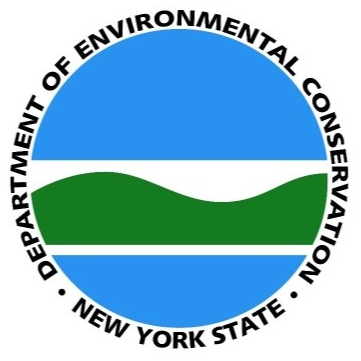Center for Native Peoples and the Environment
NYSDEC Cross-Cultural Program
Center for Native Peoples and the Environment partnership with New York State Department of Environmental Conservation
 In New York State, we are fortunate to sit at the confluence of both scientific and
Indigenous ecological knowledge systems that contribute to our care for this rich,
diverse landscape. The programs of both New York State Department of Environmental
Conservation (NYSDEC) and SUNY-ESF build upon the strengths of scientific approaches
to stewardship while the approaches of the Indigenous Nations are rooted in traditional
ecological knowledge. ESF’s Center for Native Peoples and the Environment currently
works with NYSDEC to build capacity within the organization for land justice and biocultural
restoration. Based on the Center’s mission to draw upon the wisdom of western science
and Indigenous knowledges, we engage both NYSDEC and the Indigenous Nations in support
of our shared concerns for sustainability. Our work with NYSDEC has four parts:
In New York State, we are fortunate to sit at the confluence of both scientific and
Indigenous ecological knowledge systems that contribute to our care for this rich,
diverse landscape. The programs of both New York State Department of Environmental
Conservation (NYSDEC) and SUNY-ESF build upon the strengths of scientific approaches
to stewardship while the approaches of the Indigenous Nations are rooted in traditional
ecological knowledge. ESF’s Center for Native Peoples and the Environment currently
works with NYSDEC to build capacity within the organization for land justice and biocultural
restoration. Based on the Center’s mission to draw upon the wisdom of western science
and Indigenous knowledges, we engage both NYSDEC and the Indigenous Nations in support
of our shared concerns for sustainability. Our work with NYSDEC has four parts:
-
Cross-cultural training programs for NYSDEC. The need for education in cross-cultural understanding responds to the concerns expressed by Indigenous Nations that treaties, rights, hunting, fishing, and gathering protocols and practices are not well understood by all NYSDEC personnel and by surrounding non-Native communities. The Center coordinates with Indigenous Nations in NYS to provide the cross-cultural sensitivity training for the NYSDEC that is required by Commissioner’s Policy 42 (CP-42). Besides in-person training, we partner with Indigenous environmental leaders to develop online and on-demand training modules and materials.
-
Data access and community outreach for Indigenous Nations. CNPE organizes and facilitates training and workshops for Indigenous Nations on environmental topics as determined in collaboration with Indigenous leadership. We will rely on scientific as well as traditional forms of knowledge.
We also seek to develop data sharing agreements to provide Nations with access to information to pursue traditional seasonal round practices and to help care for their homelands. Such data sharing also responds to knowledge parity issues. We recently held an online Forum to discuss Indigenous responses to climate change, and to educate Native nations about NY’s sweeping Climate Leadership and Community Protection Act and its repercussions for Indigenous lands. -
Shared research agenda. The Center will facilitate identification and collaborative development of a shared research agenda that reflects the information needs of both Indigenous Nations and NYSDEC. Both NYSDEC and Indigenous Nations have listed needs for research specifically related to Indigenous environmental concerns. ESF graduate students, working with the Center, have worked on research topics from customary use mapping and developing language that acknowledges treaty rights, to biological inventories for land justice and cultural provisioning.
-
Environmental education for Native youth. The Center collaborates with Indigenous Nations and NYSDEC to provide environmental education which incorporates both scientific and Indigenous approaches to conservation education in a cross-cultural context. We facilitate engagement of Native youth and instructors in NYSDEC summer camp programs at Camps Rushford, Pack Forest and Colby through connecting Indigenous youth to camp scholarships and support program development of Native American content for those camps.
We continue to develop a joint Center-NYSDEC environmental education program for Native Youth under the Native Earth Environmental Youth Camp model of both seasonal and summer activities. Seasonal activities have included Plant education programs for Onondaga Nation youth, as well as online teachings for students in the Lafayette school district (attended by many Native students).
